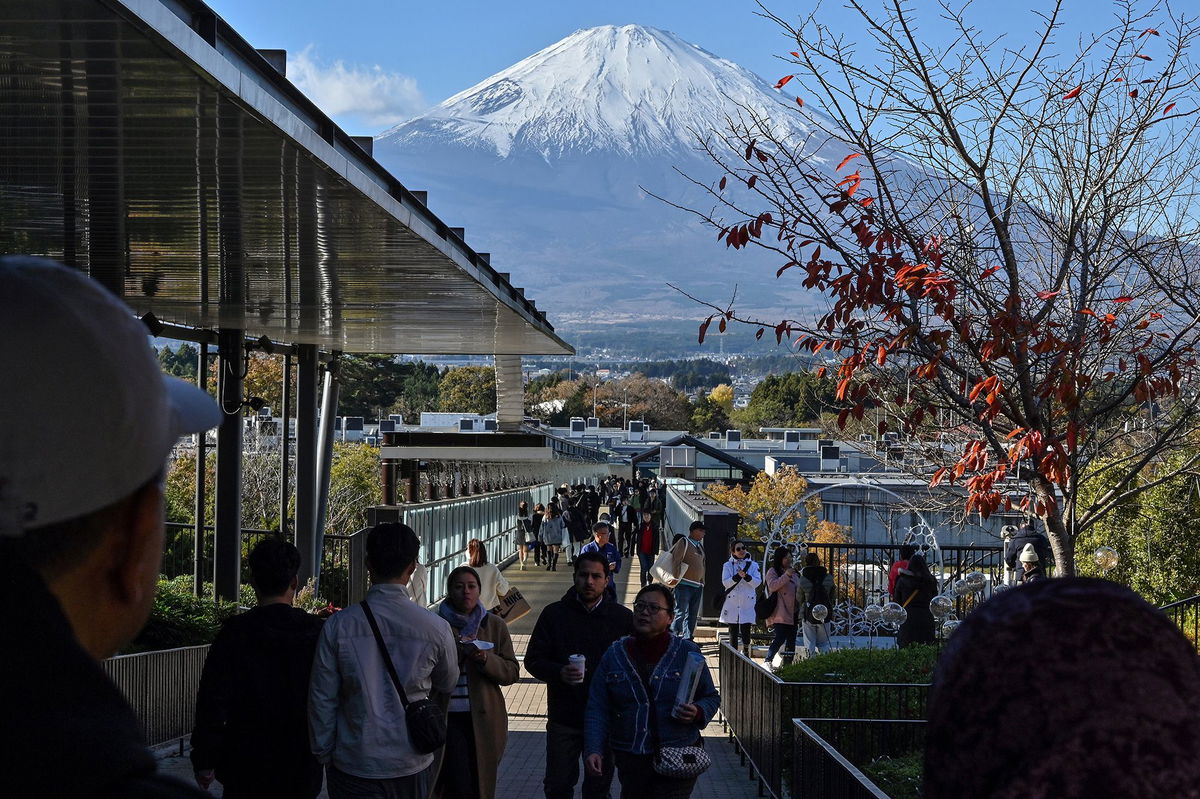Japan issues guidelines telling public what to do if Mount Fuji erupts

A view of Mount Fuji
By Jack Guy, Mai Takiguchi and Junko Ogura, CNN
(CNN) — Japanese authorities have issued guidance on how the public should respond if the famous Mount Fuji volcano, near Tokyo, were to erupt.
Experts recommend sheltering at home and maintaining a two-week supply of essentials, according to guidelines published last week.
While there is no suggestion that an eruption is imminent, Fuji is an active volcano. It last erupted 318 years ago, in what is known as the Hoei eruption.
“We have been discussing countermeasures in light of the possibility that a large-scale, explosive eruption, similar to the Hoei eruption about 300 years ago, could cause widespread volcanic ashfall across a broad area, including the capital region, resulting in severe impacts,” said Toshitsugu Fujii, a professor at the University of Tokyo, at a press conference on March 21.
A large-scale eruption would produce an estimated 1.7 billion cubic meters (60 billion cubic feet) of volcanic ash, the government said, of which around 490 million cubic meters is expected to accumulate on roads, buildings, and other land areas, requiring disposal.
The sky would be covered in black volcanic ash, and urban areas would be plunged into darkness, even during the day, the government added.
“As a response to widespread ashfall, the basic guidance is for residents to continue their daily lives at home or in other shelters. Therefore, it is important to maintain sufficient stockpiles on a regular basis,” said Fujii.
“However, if more than 30 centimeters (12 inches) of volcanic ash accumulates, wooden houses with low load-bearing capacity may collapse under the weight, making evacuation necessary,” he added.
The economic loss from a Mount Fuji eruption is estimated to be up to 2.5 trillion yen ($16.6 billion).
Even a small amount of accumulated volcanic ash could stop trains from running, and if it rains, ash that accumulates to a depth of more than 3 centimeters (1.2 inches) could make roads impassable for vehicles.
Logistics would be disrupted, making it difficult to obtain essential goods, and power lines could be cut by the weight of the ash, leading to power outages.
The-CNN-Wire
™ & © 2025 Cable News Network, Inc., a Warner Bros. Discovery Company. All rights reserved.
